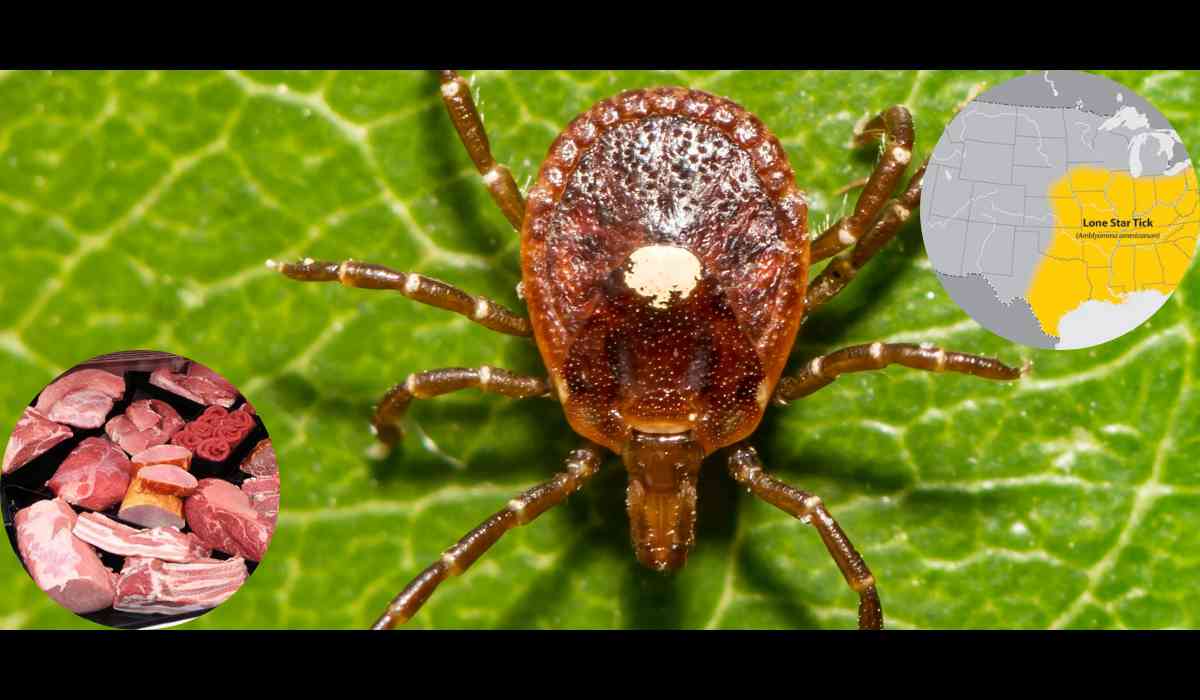In a curious tale of biological intrigue, an enigmatic condition known as the Alpha-Gal Syndrome has been making its presence felt across the United States. Originating from tick bites, this peculiar syndrome triggers allergic reactions to consuming red meat, leaving thousands of Americans perplexed and concerned. Recent data disclosed by the Centers for Disease Control and Prevention (CDC) paints a striking picture, indicating that up to 450,000 individuals in the U.S. might have fallen under its sway since 2010, marking a significant surge in cases compared to its humble beginnings among Virginians in 2008.
However, there is an alarming realization that many cases remain undiagnosed, leading to uncertainties and knowledge gaps among healthcare professionals. A parallel study of American doctors surveyed about red meat allergy showed concerning levels of unawareness, further complicating the scenario. Dr Johanna Salzer from the CDC aptly expressed the gravity of the situation, pointing out that the true burden of Alpha-Gal Syndrome could be substantial due to non-specific symptoms, limited access to healthcare, and a lack of awareness among clinicians.

About Alpha-Gal Syndrome
Delving into the mysterious realm of Alpha-Gal Syndrome, researchers discovered that it involves an allergic reaction to a sugar molecule known as oligosaccharide galactose-alpha-1,3-galactose, or alpha-gal, found in various mammalian foods, especially red meat. While dairy products might also contain alpha-gal, not all patients experience intolerance to these items. Surprisingly, other products derived from animals, such as gelatin, may harbour alpha-gal and, in rare cases, induce reactions to certain vaccines or medication capsules. The onset of allergic reactions usually occurs within a few hours after exposure to alpha-gal and can manifest as mild symptoms like rashes and nausea or escalate to life-threatening anaphylaxis. Interestingly, early indications of the syndrome were observed in reactions to the cancer drug cetuximab, whose production involved the alpha-gal molecule gene.

Nonetheless, bites from the notorious lone star tick remain the primary risk factor for developing Alpha-Gal Syndrome in the United States. While the precise mechanics of how the saliva of lone star ticks leads to the allergy remain somewhat of a mystery, scientists recognize the pressing need for further research into this perplexing phenomenon. As of now, the condition is incurable, and treatment options are mostly experimental and not formally approved by the Food and Drug Administration. The CDC emphasizes the importance of preventive measures against tick bites, especially during warmer months, urging people to use insect repellents and avoid heavily wooded areas where the risk of exposure is heightened. As the enigmatic Alpha-Gal Syndrome continues to puzzle medical experts and impact lives, the quest for understanding and effective treatments remains a pressing public health concern.
© Copyright 2023. All Rights Reserved Powered by Vygr Media.



















